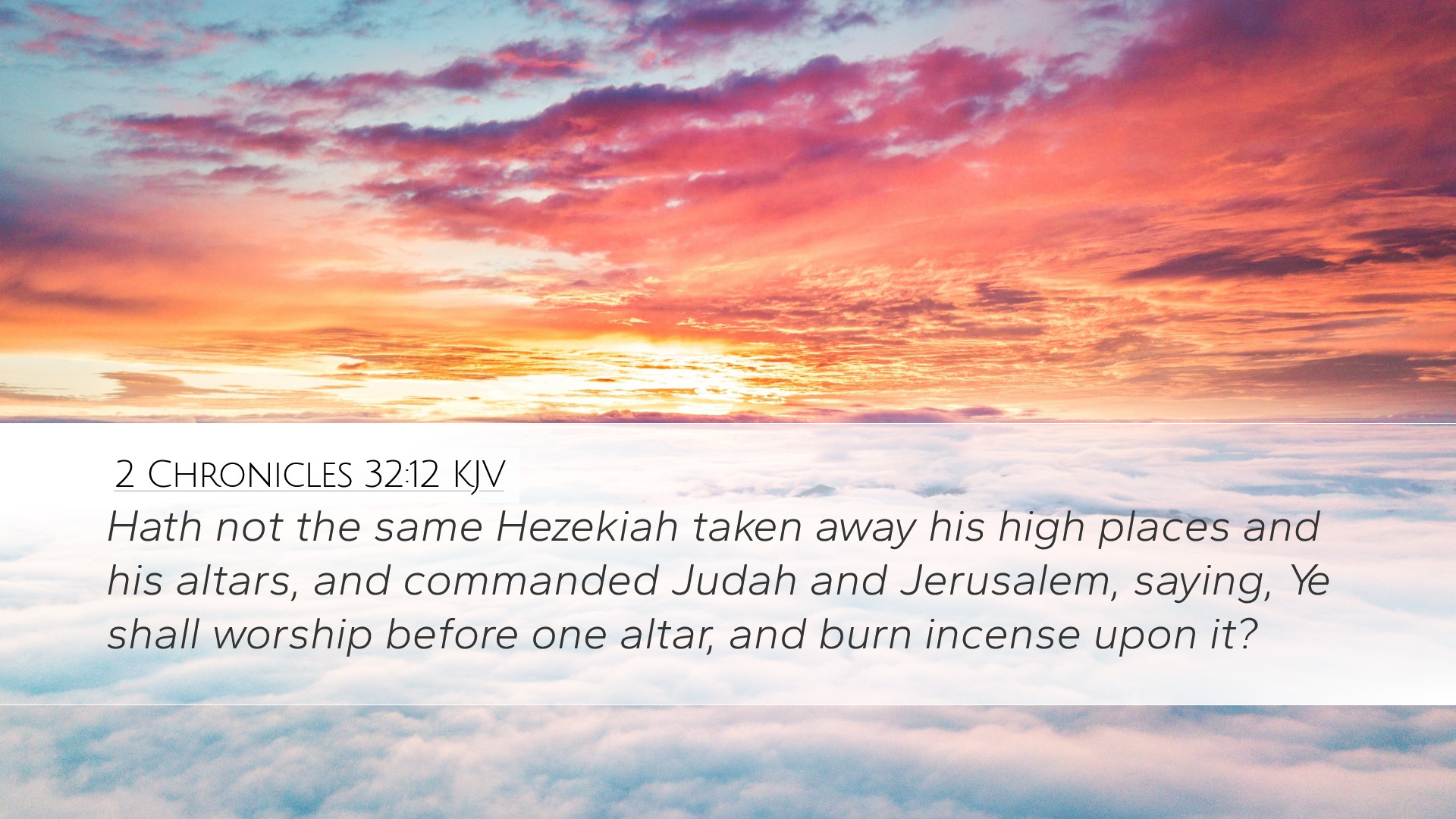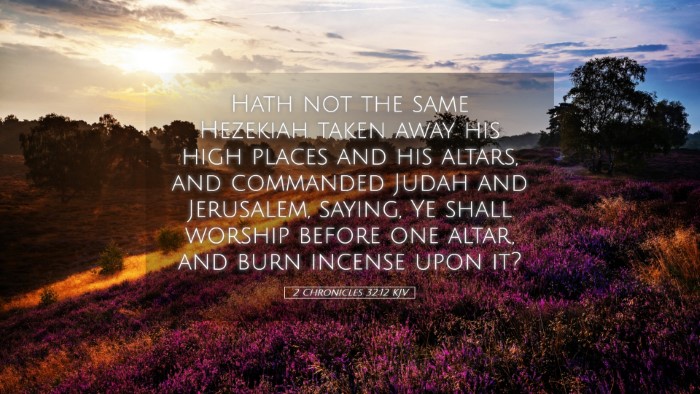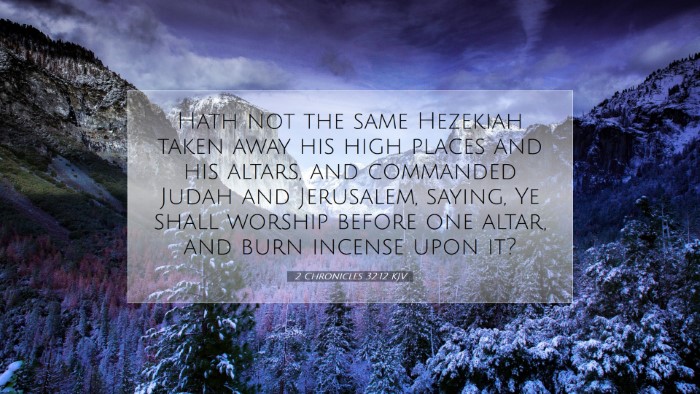Commentary on 2 Chronicles 32:12
Verse: "Hath not the same Hezekiah taken away his high places and his altars, and commanded Judah and Jerusalem, saying, Ye shall worship before one altar, and burn incense upon it?"
Introduction
This verse comes from a crucial moment in the history of Judah during King Hezekiah's reign. It addresses the reforms instituted by Hezekiah, emphasizing religious centralization and the worship of Yahweh. Public domain commentaries provide deep insights into the theological, historical, and practical implications of this verse.
Historical Context
2 Chronicles 32 presents the backdrop of a national crisis during the Assyrian invasion under Sennacherib. Hezekiah, who had been a commendable king, initiated major religious reforms. His actions are framed against the larger narrative of Israel's idolatrous past and the need for authentic worship.
Theological Implications
1. Centralization of Worship
Matthew Henry notes that Hezekiah's actions were aligned with the law given to Moses, which commanded Israel to worship at a singular place, thereby creating a unity in worship. This was essential to combat idolatry and ensure that the people focused on the true God.
2. Confrontation with Idolatry
Albert Barnes emphasizes that the religious reforms of Hezekiah were not merely administrative but were rooted in a deep-seated need to address the syncretism in Judah. By removing high places, Hezekiah confronted the idolatrous practices that had infiltrated the society, guiding the people back to covenant fidelity.
3. The Role of Leadership in Worship
Adam Clarke highlights that the command of Hezekiah to worship before "one altar" signifies the importance of leadership in securing the fidelity of the people towards God. This indicates that leaders are responsible for guiding their communities in the truth of God’s word and in proper worship practices.
Hezekiah's Leadership and Reforms
Understanding the character and actions of Hezekiah reveals much about effective spiritual leadership.
- Character of Hezekiah: Hezekiah is portrayed as a righteous king who sought to restore true worship and obedience to the covenant.
- Actions Taken: Hezekiah initiated reforms that included the removal of idols and the rededication of the people back to God’s prescribed methods of worship, which involved the reinstitution of temple worship.
- Impact on Nation: His reforms led to a renewed sense of national identity and purpose centered on Yahweh.
Application for Today's Church
The principles derived from 2 Chronicles 32:12 can be applied to the contemporary church in various ways:
- Re-evaluating Worship Practices: Just as Hezekiah assessed and reformed the worship practices of his time, today's church leaders must continually evaluate whether their worship aligns with biblical principles.
- Unity in Worship: The call to worship at one altar speaks to the need for unity in the body of Christ. Disunity can arise from differing worship styles, but the focus must remain on Christ and scriptural truth.
- Confronting Modern Idolatry: Just as Hezekiah confronted idolatrous practices, modern Christians must be aware of contemporary idols and the distractions that lead believers away from pure devotion to God.
Conclusion
The verse 2 Chronicles 32:12 encapsulates key aspects of covenantal faithfulness, religious reforms, and the necessity of leadership in spiritual matters. The insights drawn from Matthew Henry, Albert Barnes, and Adam Clarke provide a multifaceted understanding of how these themes resonate not only with Israel's history but also with the church today. As we reflect on Hezekiah's reforms, may we be inspired to seek authenticity in our worship and faithfulness to God's calling.


